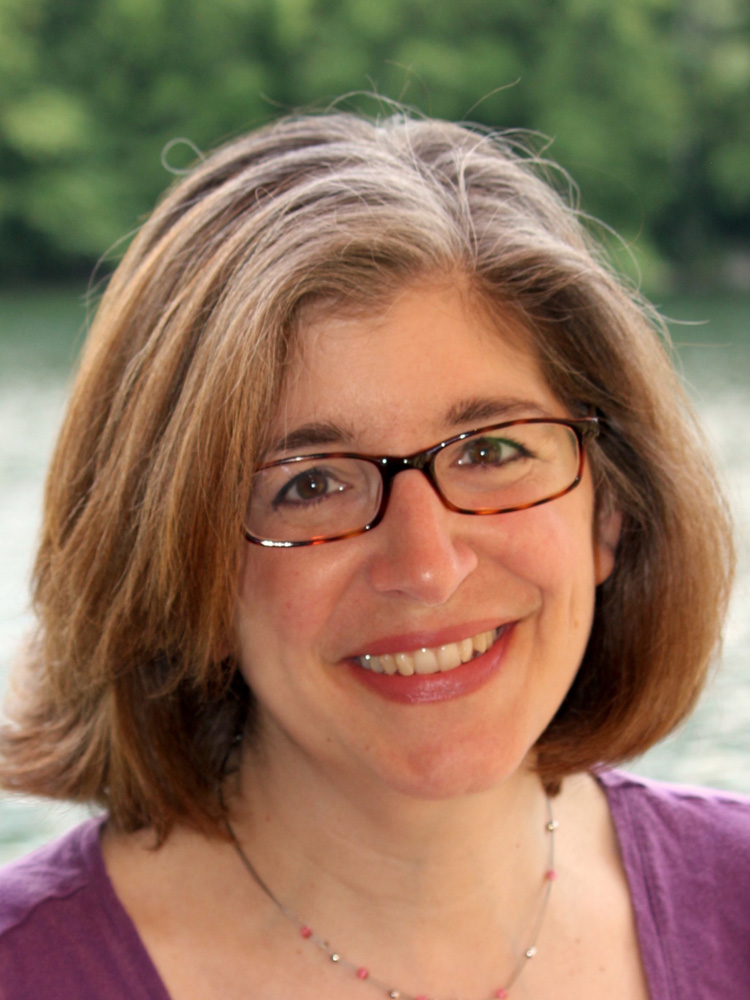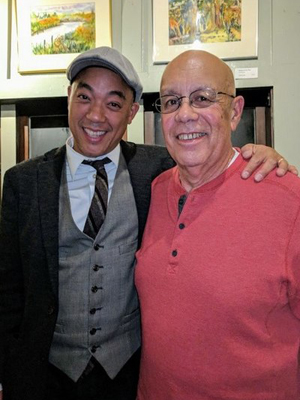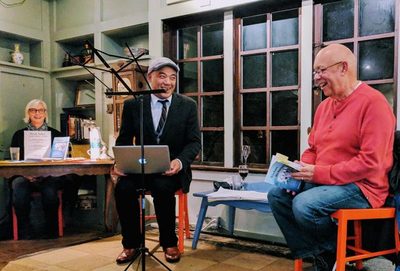Christine Adler is the president of the Women’s Fiction Writers Association (WFWA) and former editor of Inkwell. Her articles, essays, poems, and book reviews have appeared in various print and online publications throughout the Northeastern United States and Canada. She has an MFA in Writing from Manhattanville College, and is represented by Ann Leslie Tuttle of Dystel, Goderich & Bourret LLC. Adler leads the Teen Creative Writers Workshop at Somers Library in Somers, New York, and is currently at work on her second novel.
 The Teen Creative Writers Workshop at Somers Library was created for teens who love to write, those middle and high schoolers who’d tell you writing is their thing. We cover all genres—essays, fiction, fan fiction, poetry, you name it. We wanted to create a safe setting for writers where they can share their work and receive constructive feedback, while learning how to give helpful critiques to each other. We also discuss various genres and how to strengthen important elements in each one.
The Teen Creative Writers Workshop at Somers Library was created for teens who love to write, those middle and high schoolers who’d tell you writing is their thing. We cover all genres—essays, fiction, fan fiction, poetry, you name it. We wanted to create a safe setting for writers where they can share their work and receive constructive feedback, while learning how to give helpful critiques to each other. We also discuss various genres and how to strengthen important elements in each one.
When a new writer attends the workshop for the first time, we talk briefly about how to give and receive feedback. This way, everyone knows we’re using the same guidelines and have the same goal in mind: to help each other improve. I give the group a prompt and have them write for a few minutes. Each student is then invited to share and read what they’ve just written, or read something they’ve brought with them. I also read what I write from the prompts and solicit feedback from the group.
Every writer knows it can be hard to separate your work from yourself, especially when opening up to criticism. If someone is still shy about reading, I ask them to trade work with another writer in the group and read each other’s work aloud. This gives the students an opportunity to experience reading to a group, and also helps illustrate that the critiques are focused on the writing, and not on the writer.
 By far, my most rewarding experience as a teacher has been witnessing the enthusiasm expressed by the students. When we get into a discussion about books, or writing, or characters’ motivations they become so animated. It’s exciting to have them ask if we can meet weekly instead of biweekly, or if we can continue the workshop over the summer. Their interest shows me that they truly value the time spent, and enjoy learning the craft. I know they won’t all go on to become writers, but there was nothing like this for me in high school. If there had been, I might have had the confidence to start my writing career earlier in life. I love that I can be a resource to help these students start sooner if they wish.
By far, my most rewarding experience as a teacher has been witnessing the enthusiasm expressed by the students. When we get into a discussion about books, or writing, or characters’ motivations they become so animated. It’s exciting to have them ask if we can meet weekly instead of biweekly, or if we can continue the workshop over the summer. Their interest shows me that they truly value the time spent, and enjoy learning the craft. I know they won’t all go on to become writers, but there was nothing like this for me in high school. If there had been, I might have had the confidence to start my writing career earlier in life. I love that I can be a resource to help these students start sooner if they wish.
Leading a group of young writers has greatly influenced my own art too. One thing I emphasize to the members is that we’re never done learning, in writing or in life. We can always improve. I’m strong at dialogue, but weaker at character development and world-building. Many of the teens write fantasy, and as a result are world-building wizards. I’ve learned a lot about world-building from them, and I often leave the workshop, go home, and dive into my work-in-progress. We share tips and tools with each other, encourage one another to keep writing, and together, we see our work getting better. For a writer, there’s nothing more inspiring.
Support for the Readings & Workshops Program in New York is provided, in part, by public funds from the New York State Council on the Arts, with additional support from the Friends of Poets & Writers.
Photos: (top) Christine Adler (Credit: Alex Lindquist). (bottom) Teen Creative Writers Workshop participants (Credit: Tara Ferretti).





 WordsWest Literary Series—now in its fourth year of programming—was honored to celebrate Filipino American History Month by welcoming two outstanding local writers of Filipino descent, Robert (Bob) Flor and Roberto Ascalon, to the stage. As cocurator Harold Taw mentioned in his introduction, both writers are “Uncle Bobs” in a culture that gives great respect to the words and lessons of previous generations, and that acknowledges the importance of family and really good food!
WordsWest Literary Series—now in its fourth year of programming—was honored to celebrate Filipino American History Month by welcoming two outstanding local writers of Filipino descent, Robert (Bob) Flor and Roberto Ascalon, to the stage. As cocurator Harold Taw mentioned in his introduction, both writers are “Uncle Bobs” in a culture that gives great respect to the words and lessons of previous generations, and that acknowledges the importance of family and really good food! Roberto Ascalon was a stunning reader. The audience was on pins and needles as he took us into a Filipino fish market full of magical sensory images and strong characters. His love poem moved us with its unique form that didn’t quite rhyme, but felt like a song in its turning back and repetitions, and gorgeous images of seeds and growing. Bob Flor read from his chapbook Alaskero Memories (Carayan Press, 2016) about life in Alaskan canneries in the 1950s and 1960s. It is invaluable to have someone like Flor share his past experiences not only as a Filipino American with current ties to the Philippines, but as an older gentleman with an eye for details that only a poet can put down on paper. In one touching moment on stage, when the writers first traded turns at the mic, Ascalon acknowledged Flor’s age and life experience, and noted how honored he was to be reading with a Filipino elder. It was a lovely, intimate exchange between writers, between their poems.
Roberto Ascalon was a stunning reader. The audience was on pins and needles as he took us into a Filipino fish market full of magical sensory images and strong characters. His love poem moved us with its unique form that didn’t quite rhyme, but felt like a song in its turning back and repetitions, and gorgeous images of seeds and growing. Bob Flor read from his chapbook Alaskero Memories (Carayan Press, 2016) about life in Alaskan canneries in the 1950s and 1960s. It is invaluable to have someone like Flor share his past experiences not only as a Filipino American with current ties to the Philippines, but as an older gentleman with an eye for details that only a poet can put down on paper. In one touching moment on stage, when the writers first traded turns at the mic, Ascalon acknowledged Flor’s age and life experience, and noted how honored he was to be reading with a Filipino elder. It was a lovely, intimate exchange between writers, between their poems.  The Teen Creative Writers Workshop at Somers Library was created for teens who love to write, those middle and high schoolers who’d tell you writing is their thing. We cover all genres—essays, fiction, fan fiction, poetry, you name it. We wanted to create a safe setting for writers where they can share their work and receive constructive feedback, while learning how to give helpful critiques to each other. We also discuss various genres and how to strengthen important elements in each one.
The Teen Creative Writers Workshop at Somers Library was created for teens who love to write, those middle and high schoolers who’d tell you writing is their thing. We cover all genres—essays, fiction, fan fiction, poetry, you name it. We wanted to create a safe setting for writers where they can share their work and receive constructive feedback, while learning how to give helpful critiques to each other. We also discuss various genres and how to strengthen important elements in each one. By far, my most rewarding experience as a teacher has been witnessing the enthusiasm expressed by the students. When we get into a discussion about books, or writing, or characters’ motivations they become so animated. It’s exciting to have them ask if we can meet weekly instead of biweekly, or if we can continue the workshop over the summer. Their interest shows me that they truly value the time spent, and enjoy learning the craft. I know they won’t all go on to become writers, but there was nothing like this for me in high school. If there had been, I might have had the confidence to start my writing career earlier in life. I love that I can be a resource to help these students start sooner if they wish.
By far, my most rewarding experience as a teacher has been witnessing the enthusiasm expressed by the students. When we get into a discussion about books, or writing, or characters’ motivations they become so animated. It’s exciting to have them ask if we can meet weekly instead of biweekly, or if we can continue the workshop over the summer. Their interest shows me that they truly value the time spent, and enjoy learning the craft. I know they won’t all go on to become writers, but there was nothing like this for me in high school. If there had been, I might have had the confidence to start my writing career earlier in life. I love that I can be a resource to help these students start sooner if they wish.